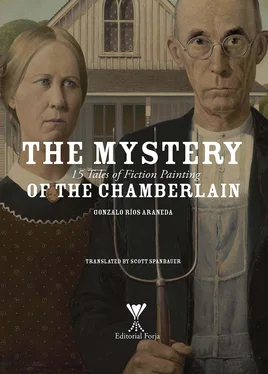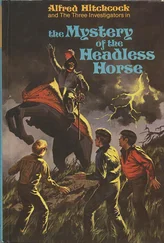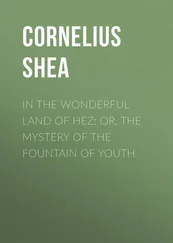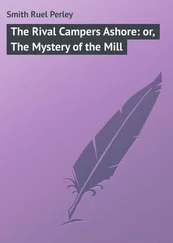At one point, Dante turned toward the old man and begged him to search his memory. That he try to recall details of the miracle. He asked him if there had been any sort of music that accompanied the phenomenon, or some message that could be deduced from the events that occurred among them following the appearance. To the astonishment of his interlocutors, he added that he had information unknown to the Christian world, of other related situations that took place that same evening in the vicinity of Rivo Torto. Giotto was engrossed, his gaze fixed upon the poet, wondering if the author of La Vita Nuova was really being serious. He was surprised by the tenor of the questions and his insistence upon requiring details that he himself would have catalogued straightforwardly as metaphysical digressions.
Impressed by the poet’s talkativeness, and goaded on by it, the old man returned to his memories going deeper into the same topics he had touched on the day before, and as the conversation progressed, so grew his fervor. Regarding the Rivo Torto incident, he claimed he remembered it as if it had happened yesterday. “Gentlemen,” he said, “I can swear to you that the miracle I had the good fortune of witnessing was a wonder of divine light that took possession of the heavens with emerald fires and diamond-like flashes. All of it,” he added, “with a humming of angelic bees that lulled our ears until it vanished from in front of us.” Giotto appeared impressed, while the poet turned toward the old man.
“Seeing as the world is a sphere, clearly you have witnessed a marvel of biblical design,” exclaimed Dante, convinced that he was flattering the priest. But the latter turned his speech back on him.
“You think so?” the aged priest asked heatedly, to which young Alighieri, not realizing the point of the question, agreed with a nod.
“You too think that the Earth is round, master?” the old man asked again, resolutely.
“Ah, that’s what you were saying!” exclaimed Dante. “Perhaps you think the opposite, as do the common folk?”
Not taking the mention of common folk personally, for like Cesco, his sainted friend, he always loved humble people, he bent dolefully over the Bible which he had open to a particular page and muttered something about the flat sailing of the Earth through space, while at the same time, with his right hand, tracing a cross on his chest.
Dante, a bit uneasy at the direction the conversation could be heading, jumped in ahead of Giotto who was about to intercede.
“Father, well you must know the sayings of a certain Sacrobosco, which I have indeed heard from the mouth of a scholar of matters of Nature. This Sacrobosco maintains that the Earth is the central point of the heavens, and that it is enfolded completely by water and, in turn, that surrounding this water is air. And more, that all around that life-giving air is fire in its pure and undisturbed state. These three elements, each in its heavenly place, shape the Earth into a spherical form. Have you heard of it? It’s as if the man’s view, in harmony with God, encompassed everything in all three dimensions. Everything contained inexplicably in a sphere. However, don’t ask me how we remain standing upon it, as if we were ants, because I can’t imagine it.”
“Oh, brave unbeliever! You speak like a poet, with your fantasy up your sleeve,” said the friar. “Stand something upright on the surface of the Earth, of whatever length you like, and you will see that your words are futile. The Earth is flat wherever you measure it. Really, the fallacy is deducing that it is round, like the other heavenly bodies, and denying that God recognizes us as his privileged children, placing all of the celestial lights at our disposal for our enchantment, or at the very least, in order to bring us day and night.”
“Dearest Father,” said the poet, “in this matter, you plainly do not wish to see” reminding him straight away that Aristotle’s writings were clearly there on the subject of the Earth’s sphericity, but the other argued that those were the arguments of a pagan, to which Dante replied cautiously:
“I can assure you, nevertheless, that despite my doctrinal helplessness…and I say it respectfully, I support my statements with the Bible itself…and with certain knowledgeable opinions of the Universal Church” he said, lowering his voice and reciting from memory Chapter 40, Verse 22 of the Book of Isaiah.
Ignoring the bard’s words, Father Anselmo, somewhat weary, said to him sternly:
“Don’t bother with modesty here among us, as I know well that yours is but pride. Those are the tall tales of reprobates who long only for the decline of the Church. What is it that you don’t see? Do you perhaps not feel the support of the only world you possess beneath your feet? Thanks to it, you don’t fall into the fiery void that consumes the unbelievers!” immediately after which he fell into a silence, sufficient for both young men to exchange a knowing glance and agree to an unspoken retreat.
“But, let us not detour from our purpose, which is that I am interested in the events you experienced,” said Giotto. “What do you say we look into the personality of Saint Francis? It’s about time that we learn how he interacted with his monastic brothers.”
Questions of this type put an immediate end to the tension generated by the flat Earth issue; and the friar himself, now recovered from his tantrum, helped to ease the atmosphere by recounting divers details of the saint’s life. During a break in the priest’s account, Dante explained with a certain solemnity that he “arrived motivated by the mystery that the man embodied.” “For me, being here with you is like being in a state of grace difficult to explain, if you will permit me,” he contended. Next, turned toward Giotto, he maintained that “it appeared the saint opened our reasoning and inundated it with light.” “You yourself must feel something similar when you behold the external factors of his life.” Faced with these words, which to Giotto seemed so just, the painter maintained that Saint Francis furnished him with a freedom that he had not glimpsed before; akin to bringing the sacred back to the understanding of the lowly, in open repudiation of any ostentation that might make the divine into an unattainable possession.
“It is time to humanize the message of Christ,” Dante concluded.
“But that is heresy,” the old man interjected, as if stung by a dart. “Without fail, the divine should be represented with respect and with the distance that separates God from man,” he added.
Here, the young men remained in admiration of the wisdom in his observation.
“Nevertheless, Father, it’s not good for the spreading of the faith to distance man from Nature, given that the latter also emanates from God” weighed in Giotto, not imagining that his words would encourage the poet to express his respect outwardly: “I can naught but admire the naturalness of your expressivity, dear friend, and I must confess that I am enchanted at discovering the profundity of those spaces that you are able to depict; both Nature and the interior of the human soul.” It was evident that the poet followed the work of Giotto closely, since he declared himself impressed by his ability to endow the sacred figures with realistic, human traits. “With your art, you prepare us to penetrate into what is true,” he said.
At all of this, Father Anselmo had fallen back into silence and focused on the two young men’s conversation. Perhaps readying an argument that might put them in their place, convinced as he was that it was only a matter of time before their youthful brains would see reason. “They’re too young to understand God’s plan.” It didn’t surprise him when the poet returned to the topic of the winged chariot of Rivo Torto; and as he maintained his memories of his brother Cesco with fervent devotion, he had no fear of the poet’s questions nor the painter’s observations; so he craned his neck toward the poet and cupped a hand around his right ear the better to hear him.
Читать дальше
